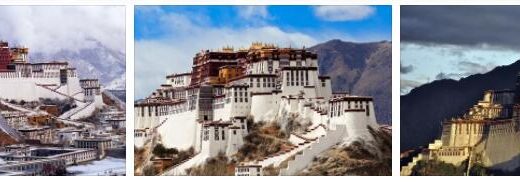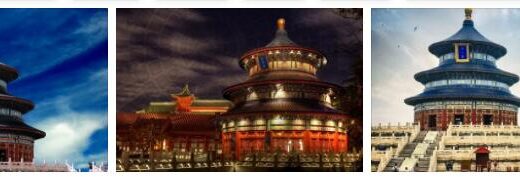Lushan National Park (World Heritage)
The national park in Jiangxi Province is one of the most important spiritual centers in China. A number of Taoist, Buddhist and Confucian temples stand in the midst of the beautiful landscape.
Lushan National Park: Facts
| Official title: | Lushan National Park |
| Cultural monument: | “Summer house mountain” with the highest peak rising to 1474 m, place of spiritual and artistic inspiration with the “Cave of the Immortals” (Xianren Dong), the “Temple of the Eastern Forest” (Donglin Si), which is the birthplace of the “School of the Pure.” Landes «is valid, the source of wisdom (Congming Quan), the White Deer Cave School (Bailudong Shuyuan), library of Haihu Si, in which the copy of the Lotus Sutra is in the calligraphy of Zhao Zi’ang |
| Continent: | Asia |
| Country: | China, Jiangxi |
| Location: | at Poyang Lake, south of Jiujiang and north of Nanchang |
| Appointment: | 1996 |
| Meaning: | one of the important spiritual centers in China |
Lushan National Park: History
| 11th century BC Chr. | according to the legend about the seven brothers of the Kuang family, their settlement on the Lushan |
| 145 (?) – 90 (?) BC Chr. | Records of the historiographer Sima Qian and first mention of Lushan |
| since the 4th century | important refuge for Buddhist monks |
| 365 (?) – 427 | Tao Yuanming, probably the most important poet between the Han and Tang times |
| 381 | Founding of Donglin Si by the monk Huiyuan (333-416) |
| 688-763 | Jianzhen, a monk who worked in the “Temple of the Eastern Forest” |
| 701-62 | Poet Li Bai (Li Tai’bo) |
| 972 | Foundation of the White Deer Cave School |
| 1030-1200 | Philosopher Zhu Xi |
| 1044 | Construction of the Xilin Ta pagoda |
| 1618 | Construction of the Haihu Si with library |
Mount of Poets and Thinkers
Lushan, the »summer house mountain«, is one of the oldest summer resorts in China. Legend has it that the seven brothers of the Kuang clan built a summer residence here more than three millennia ago. In addition to fresh air, beautiful scenery and tranquility, they are said to have also found immortality. Since that time, countless civilization-tired people, including many well-known Chinese scholars, painters and poets, have tried to imitate their brothers. They withdrew into the mountain solitude to seek artistic inspiration and their peace of mind. One of them was the legendary monk Lü Dongbin, who is said to have found eternal life in a cave and is one of the famous “eight immortals” of Daoist mythology.
Numerous Chinese poets and thinkers of later generations did not find physical immortality in the “summer house”, but their spiritual legacies made them unforgettable for those who were born later. Not far from Lushan, in the village of Lili, the poet Tao Yuanming saw the light of day. His “Sage of the Peach Blossom Spring”, which is still known to every child in China today, tells the story of a fisherman who happened to discover a country behind a cave in which all people live in simplicity, peace and happiness and neither resentment nor war know. The creator of this legend found paradise for himself on the Lushan. To lead a life close to nature as a farmer and to dedicate himself to his poetry. Year after year he was in close contact with the Taoist scholar Lu Xiujin and the Buddhist monk Huiyuan, and these three wise men are said to have met regularly to exchange ideas in the local “Temple of the Eastern Forest”. The so-called “source of wisdom”, which is said to give wisdom to those who drink its water, also rises from this place. Whether the three feasted on it or occasionally did not indulge in alcohol for their spiritual stimulation is not known with absolute certainty. In the village of Lili, at least, you can still visit the so-called “Drinking Stone”, on which Tao Yuanming regularly slept off his intoxication. So: in vino veritas?
According to militarynous, Li Bai, China’s great poet of the Tang period, was drawn to the pleasant coolness of Lushan in the 8th century. He loved to linger pensively at the “three-step source” and to escape the world in his mind in order to indulge in the spectacle of nature.



